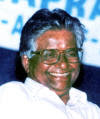1. List of Delegates & Observers
As already requested, all our State Federations are advised to finalise their List of Delegates & Observers as early as possible and submit the same to our Central Office with copy to the Reception Committee at Delhi. The total number of Delegates & Observers should be informed to us and Reception Committee immediately.
2. Accommodation/Stay arrangements
Many States are yet to inform the Reception committee about their requirements for accommodation of delegates & observers. State Federations should immediately inform Reception Committee about number of participants who would stay in the halls arranged by them and number of people who would say in hotel rooms. Last minute arrangements for hotel rooms would be very very difficult due to seasonal rush in Delhi.
3. Photo Identity Cards
All participants should be advised by our State Federations to keep a photo Identity Card with them as the same will be required when they check in at the hotels, etc.
4. Arrival Details
Details of arrival in Delhi should be informed to Reception Committee in advance to enable them to arrange transportation from Railway Station to the places of accommodation.
5. Annual Fees
State Federations are once again requested to remit the Annual Fees upto 2007 and not wait till the Conference.
6. Weather in Delhi
Weather in Delhi during middle of November will be normally pleasant during day time but mildly cold in the nights. Hence a shawl or a sweater would be advisable as a precaution.
7. Conference Schedule
We give below the conference schedule :
15.11.2008 3.00 P.M. Procession
5.00 P.M. Inaugural Public Session
16.11.2008 10.00 A.M. Delegate Session
5.00 P.M. Seminar
7.30 P.M. Cultural Programme
17.11.2008 10.00 A.M. Delegate Session
5.30 P.M. Women’s Convention
7.30 P.M. Cultural Programme
18.11.2008 10.00 A.M. Delegate Session
6.00 P.M. Conclusion
7. Registration and Distribution of Delegate Cards / Documents
14.11.2008 3.00 PM to 8.00 PM At Conference Hall Venue
15.11.2008 10.00 AM to 1.00 PM (Ramlila Grounds)
8. Conference Programme
15.11.2008 (Saturday)
3.00 P.M. : Massive Procession from Raj Ghat to Ram Lila Grounds.
5.00 P.M. : Inaugural Public Session
Inauguration : Com. Gurudas Dasgupta, General Secretary, AITUC
Chief Guest : Mrs. Shiela Dixit, Chief Minister, Govt. of Delhi.
Guest of Honour : Sri Oscar Fernandes, Minister for Labour & Employment,
Government of India.
Greetings by : Com. H. Mahadevan, Dy. General Secretary, WFTU
Com. Sukomal Sen, General Secretary, TUI – P & A.E
Com. R.J. Sridharan, General Secretary, AIBOA
Com. A.V. Nachane, General Secretary, AILICEF
Com. N.D. Sundaresan, General Secretary, GIEAIA
Introduction of : Leaders of Foreign Delegations
16.11.2008 (Sunday)
10.00 A.M. : - Presentation of General Secretary’s Report
- Presentation of Accounts and adoption
Greetings by Foreign Delegates & Leaders of UFBU.
Discussion by Delegates on Report
5.00 P.M. : Seminar
Subject : GLOBAL FINANCIAL CRISIS – CAUSES,
CULPRITS, IMPACT, REMEDIES & TASKS.
Speakers : Prof. Babu Mathew, Social Activist
Mrs. Sucheta Dalal, Noted Journalist
Prof. Arun Kumar, Jawaharlal Nehru University.
17.11.2008 ( Monday )
10.00 A.M. : Discussions by Delegates in Commissions
5.30 P.M. : Women’s Convention
Speaker : Com. Amarjit Kaur, Secretary, AITUC
18.11.2008 ( Tuesday )
10.00 A.M. : Discussions on Report
3.00 P.M. : Reply & adoption of Report
Amendments to Rules
Resolutions
Election
6.00 P.M. : Conclusion
With greetings,
Yours Comradely,
C.H. VENKATACHALAM
GENERAL SECRETARY
